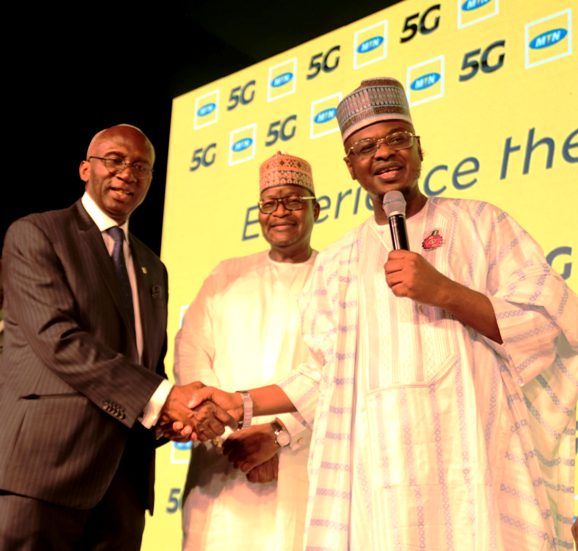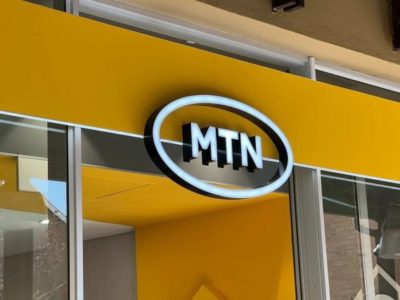Telecom giant MTN Nigeria has trialed its 5G technology in Abuja to begin the formal rollout of the fifth-generation cellular network across Nigeria.
Present at the 5G demo were the country’s major stakeholders including the Minister of Communications and Digital Economy, Dr Isa Ali Ibrahim Pantami and the Executive Vice Chairman/CEO of Nigerian Communications Commission (NCC), Prof Umar Danbatta.
CEO of MTN Nigeria, Ferdi Moolman, assured that with the successful trial, the mobile operator will hasten its plans to make 5G Network available across Nigeria. MTN plans to roll out 5G in major cities in Nigeria before 2020.
“5G will make our life better, drive incremental capacity and open up new businesses,” said Moolman. “MTN has invested over N800 billion in infrastructure in Nigeria.” He added while speaking in Abuja,
In August this year, the NCC announced it has approved the spectrum for the trial of 5G services in the country to ignite the race for who will lead Nigeria’s 5G race.
But MTN had in July of 2018 said it would be launching 5G network across some of its market in Africa. Its 5G demo in Abuja is coming on the heels of an earlier trial of the technology in South Africa, its second largest market after Nigeria.
What 5G would mean
What marks out 5G from 4G is its data speed. 5G is about 100 times faster than 4G and low latency is also a key differentiator between 4G and 5G. Reduced latency means that mobile device connection would be a replacement for cable modem and Wi-Fi. Because with 5G offers you speed of up to 100 gigabits per second running on your mobile devices, the future of wi-fi is dim.
5G is here with us – Gemalto
4G is now common throughout the world, but things are about to change again. The Internet of Things is now a real possibility and 4G will not be able to manage the huge number of connections that will be on the network. It is expected that there will be more than 20bn connected devices by 2020, all of which will require a connection with great capacity. This is where 5G comes into force.
5G has started to create a hype recently when we saw the first trials of the capabilities of the network taking place. What is more, some of the capabilities of 5G were demonstrated during the 2018 Winter Games in PyeongChang, making the games the most exciting to date for both fans and participants.
So, what makes 5G so different from 4G?
Simply said, 5G is widely believed to be smarter, faster and more efficient than 4G. It promises mobile data speeds that far outstrip the fastest home broadband network currently available to consumers. With speeds of up to 100 gigabits per second, 5G is set to be as much as 100 times faster than 4G.
Low latency is a key differentiator between 4G and 5G. Latency is the time that passes from the moment information is sent from a device until it can be used by the receiver. Reduced latency means that you’d be able to use your mobile device connection as a replacement for your cable modem and Wi-Fi. Additionally, you’d be able to download and upload files quickly and easily, without having to worry about the network or phone suddenly crashing. You’d also be able to watch a 4K video almost straight away without having to experience any buffering time.
5G will be able to fix bandwidth issues. Currently, there are so many different devices connected to 3G and 4G networks, that they don’t have the infrastructure to cope effectively. 5G will be able to handle current devices and emerging technologies such as driverless cars and connected home products.
Source: https://www.justaskgemalto.com/en/difference-4g-5g/
Cover Image of Dr Pantami, Prof Danbatta and MTN’s Board Chairman Ernest Ndukwe : YES International Magazine































